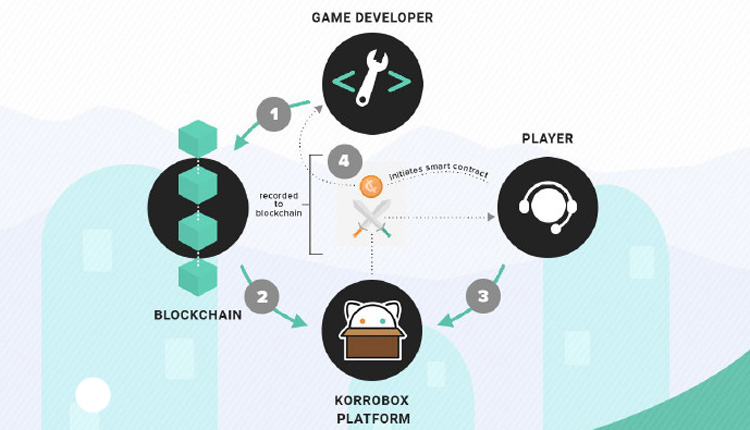Can 0% margin game store KorroBox become a blockchain Steam for indies?

COO Boa Lam explains how
Digital distribution already accounts for the majority of the $140 billion spent annually on games, so how difficult could it be to bring that activity over to the blockchain?
Conceptually, it’s very simple.
All transactions immediately become open and transparent. Blockchain solves many DRM issues, as well as enabling the resale of games and supercharging item trading thanks to fiat cash-out.
KorroBox looking to gain first mover advantage with its MVP going live in late May
Sure, there are currently issues in terms of infrastructure scalability and the hoops you have to jump through to acquire cryptocurrency, but these are being solved.
What will be more difficult to overcome, however, is the scale of existing platforms, notably in the case of PC games, Valve’s Steam marketplace.
A nation of shopkeepers
Plenty of companies are gunning for various aspects of this business, of course.
The likes of WAX and Gameflip are looking at blockchain item exchanges while ALAX, MobileGo and Moo Store are blockchain mobile game store plays, and Robot Cache is focused on equitable PC game resales.
All of them highlight the high margins taken existing platforms, with Steam, the Apple App Store and Google Play store taking 30% of all transactions.
Few, however, are addressing this market as aggressively as LA-startup KorroBox.
Founded by CEO Ben Huang (previously Riot Games, Twitch and Blizzard), and COO Bao Lam (ex-Riot), its baseline is 0% commission on new game and in-game items sales, although it will take a 5% margin on the resale of in-game items. The developer will get 10% and the seller 85%.

KorroBox also looking to gain first mover advantage with its MVP – a browser-based store using MetaMask – going live in late May.
Keep it simple
“We’ve already got six games signed up; a mixture of already released games and new titles,” Lam explains.
None of them will be exclusive to KorroBox, but given the consumer buzz around blockchain and the potential for discounting provided by that 0% margin, Lam reckons it will be able to build an committed audience.
We’re using Ether because it’s the simplest
KorroBox is also looking to differentiate itself in blockchain terms by not rolling its own token and raising cash through an ICO, although it did originally consider this.
Currently bootstrapped by the founders, the 10-strong team is moving into a Silicon Valley accelerator program and will look for more traditional VC funding, but first wants to get a product live.
“That will get us more leverage,” Lam points out.
In terms of a platform currency, KorroBox will use Ether. That makes it easy for consumers, particularly US consumers who can purchase ETH directly through MetaMask.

“When we spoke to developers, they didn’t want to have to deal with another token they have to try and cash out through exchanges,” Lam says.
“We’re using Ether because it’s the simplest but ultimately we’re agnostic. We can use whatever currency works best.”
Tokenized economy
As with most blockchain gaming projects, the success of KorroBox’s prime retailing mission will partly be dependent on its ability to build a community.
To that extent, the company’s designing a cryptocollectible avatar system, which as well as being supported by a couple of in-development first party games, will also enable it to generate some revenue through an item pre-sale.
As with the platform in-game items, these avatars will be ERC721 tokens. KorroBox will use such tokens to provide access to games.
Given Huang and Lam’s previous experience in the world of esports, the company is also working closely with some influencers and streamers to ensure the project launches both with visibility and collectibles that have wide appeal.
Assuming the first phase of the project goes well, the plan is to transition from the original browser/MetaMask solution to a desktop client solution with an integral wallet by the end of 2018.
You can keep up-to-date with KorroBox’s progress via its website and check out the whitepaper here.
And don’t forget to follow BlockchainGamer.biz on Twitter and Facebook.

